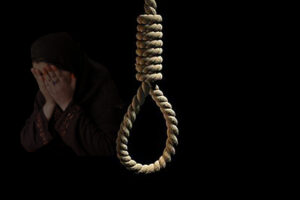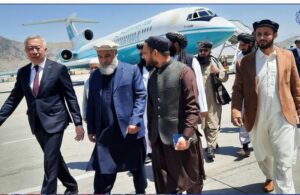MONITORING (SW) – Tomas Niklasson, EU Special Envoy for Afghanistan, has said conditions are not in place to allow for recognition by the international community of the de facto authorities in Afghanistan.
He said this in a statement after the five day visit. In this message, he met with representatives of UNAMA, UN agencies and the diplomatic community, acting director of the general Directorate for Intelligence (GDI), the acting deputy minister of Public Health and the acting director of the Afghan Food and Drug Authority, as well as officials at the Ministry of Foreign Affairs representatives of civil society and of ethnic minorities, human rights activists, former president Hamid Karzai and political figures.
He arrived in Kabul from Doha after having attended the 1-2 May meeting of Special Representatives and Special Envoys for Afghanistan from more than 20 countries, as well as the EU and the OIC, chaired by the UN Secretary-General António Guterres.
“The meeting was a welcome initiative by the UN to once more put Afghanistan in focus. In the discussions, there was a consistent view that the conditions were not in place to allow for recognition by the international community of the de facto authorities as a legitimate government, but that engagement with the de facto authorities and other Afghans must continue to address shared concerns – including security and counter-terrorism, the need for inclusive governance, upholding human rights, preventing irregular migration and human trafficking, countering narcotics production and smuggling, and stabilising the Afghan economy”, he said.
The important role of Afghanistan’s immediate neighbours was also discussed. “Regretfully, the ban of last December on Afghan women working for NGOs is still in place. This challenges fundamental principles and has immediate consequences, as critical assistance delivered by such organisations cannot reach women and children in need. Furthermore, Afghan girls and women are still prevented from attending secondary school or university due to decisions taken by the de facto authorities, while a very large number of Afghan boys can also not access primary or other forms of education due to lack of availability or opportunity”, he noted.
The EU envoy said this has an immediate impact on the children and young women affected and deprives Afghanistan from benefitting fully from its talented people to rebuild and develop the country.
ENDS






